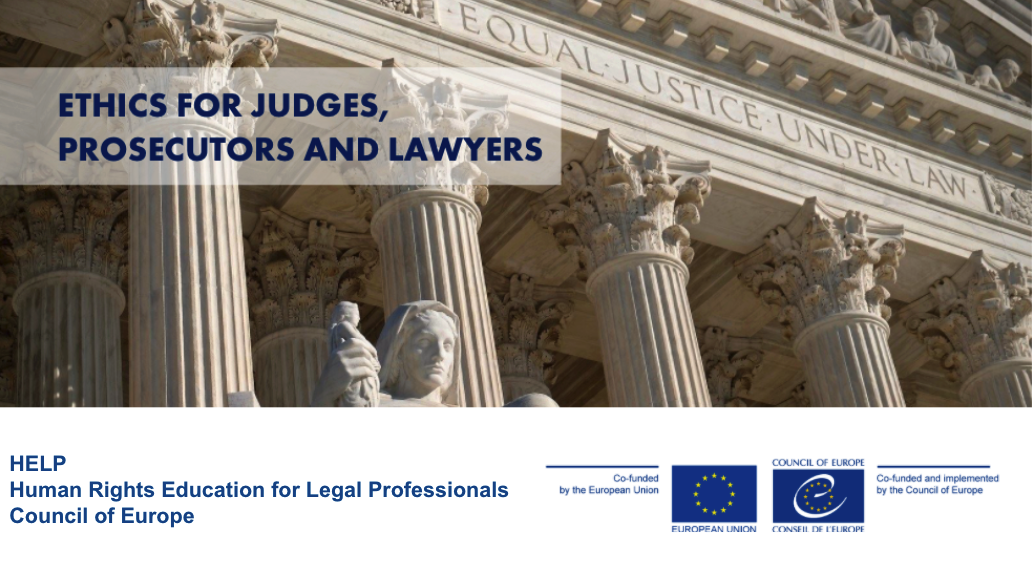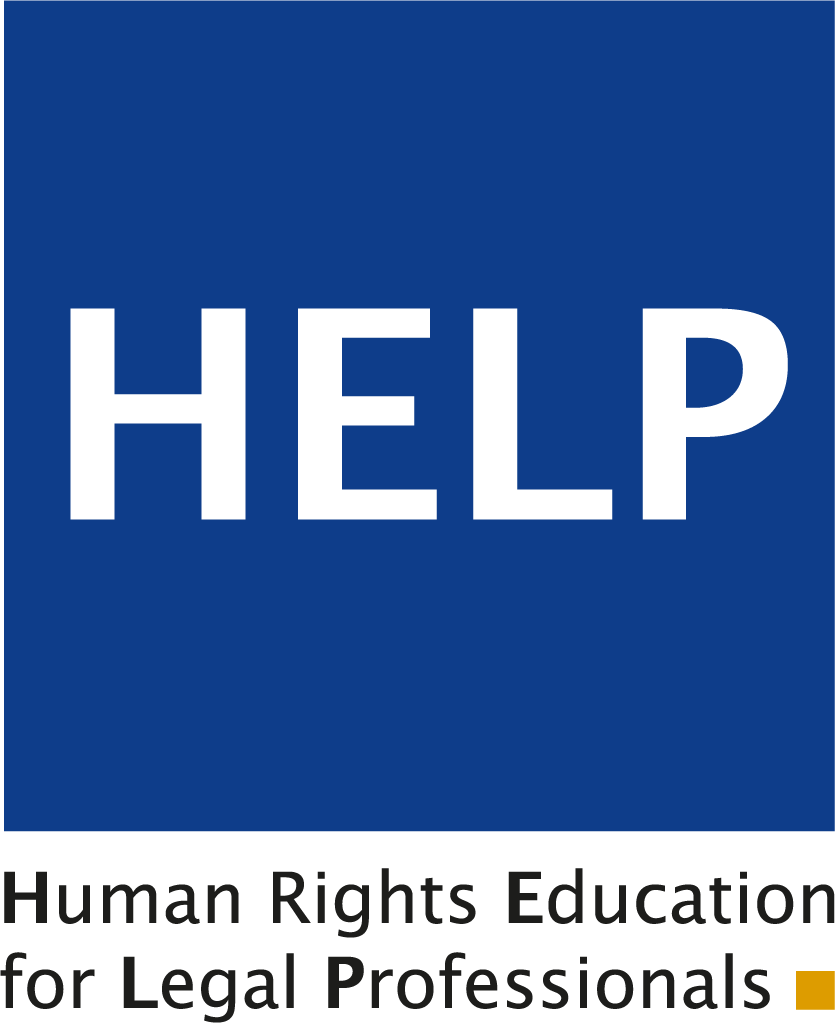On April 17, 2024, 70 Italian lawyers convened online for the launch of the Human Rights Education for Legal Professionals (HELP) course on Ethics for Judges, Public Prosecutors, and Lawyers. Organised by the Council of Europe HELP Programme under the EU funded project ‘Judicial Training on Fundamental Rights and Rule of Law’ in collaboration with the National Bar Council (CNF), the event aimed to enhance understanding and adherence to ethical principles within the legal profession.
Francesco Greco, President of the National Bar Council, inaugurated the event with a compelling address, stressing the indispensable role of ethical conduct in upholding the rule of law. He underscored the legal profession's commitment to integrity and transparency, setting an inspiring tone for the proceedings.
Oana Girlescu, Project Coordinator in the Justice and Human Rights Training Division at the Council of Europe delivered a comprehensive overview of the HELP programme's objectives and resources. Her presentation shed light on the program's holistic approach to promoting human rights education and fostering ethical awareness among legal professionals.
Keynote speaker Judge Raffaele Sabato, from the European Court of Human Rights (ECtHR), delved into the ethical considerations underpinning the European Convention on Human Rights (ECHR). His presentation, ‘Preserving the Rule of Law through Ethics’ led to an insightful discourse elucidating the intrinsic link between ethical conduct and the preservation of the rule of law and offering profound insights from his extensive judicial experience.
Gianluca Grasso, Counsellor at the Court of Cassation, explored the nexus between ethics, independence, and impartiality within the judiciary. He addressed the ethical challenges faced by judges and underscored the imperative of upholding ethical standards to safeguard the integrity of the judiciary.
Antonio Giulio Lana, Lawyer and Professor of European Human Rights Law at La Sapienza University, focused on the importance of ethics in the legal profession. His presentation highlighted the ethical responsibilities of lawyers and underscored the role of ethics in preserving the integrity of legal practice.
The HELP online course on Ethics was presented by Barbara Spinelli, who will be tutoring the course in the following weeks. She outlined the course's curriculum, emphasising its interactive approach to ethical education and its potential to empower legal professionals with the tools needed to navigate ethical dilemmas effectively.
The launch event concluded with a Q&A session, providing participants with an opportunity to engage with the speakers and address their queries.
The seminar and the HELP course that participants will follow aims to instil a culture of ethical responsibility and integrity within the legal profession and falls underthe HELP Programme’s general objective to advance human rights education and uphold the principles of justice and fairness in legal practice.
The HELP course on “Ethics for Judges, Prosecutors and Lawyers” provides an interactive exploration of fundamental concepts and principles essential to legal practice. Delivered online, the course offers participants a comprehensive understanding of international European frameworks, relevant case law from the European Court of Human Rights (ECtHR) and the Court of Justice of the European Union (CJEU). Its primary objective is to equip legal professionals with the necessary knowledge and reflective skills to navigate ethical challenges inherent in their roles.
Covering a range of international standards, the course incorporated foundational documents such as the Bangalore Principles for each profession. At the Council of Europe Level (CoE), it draws upon guidelines outlined by the European Commission for the Efficiency of Justice (CEPEJ) materials, opinions from the Venice Commission, and the Rule of Law Checklist. Additionally, insights from the Consultative Council of European Judges (CCJE) and the Consultative Council of European Prosecutors (CCPE), alongside ECtHR case law, enrich the learning experience.
Addressing EU standards, the course delves into Article 47 of the EU Charter of Fundamental Rights and relevant CJEU jurisprudence. It also provides references to EU initiatives aimed at strenghtening the rule of law, including Rule of Law reports and the specialised Rule of Law Mechanism.
The HELP online course on Ethics for Judges, Prosecutors and Lawyers is also freely available in self-learning format, allowing participants to engage at their own pace. Available in 23 languages, it offers approximately 9 hours of content, and participants can obtain an electronic Statement of Accomplishment upon completion. Existing HELP account holders can access the course directly, while newcomers are encouraged to create a HELP account, which requires only 2 minutes.





